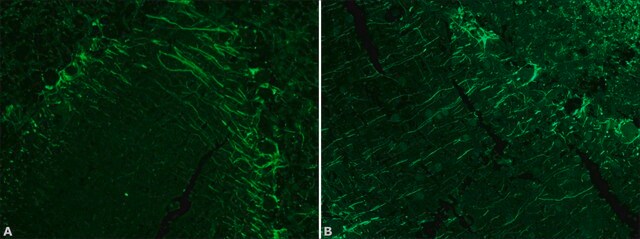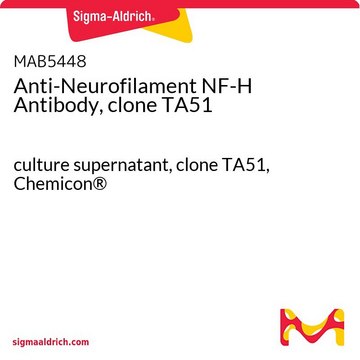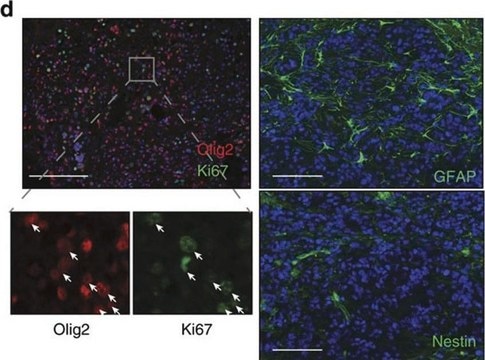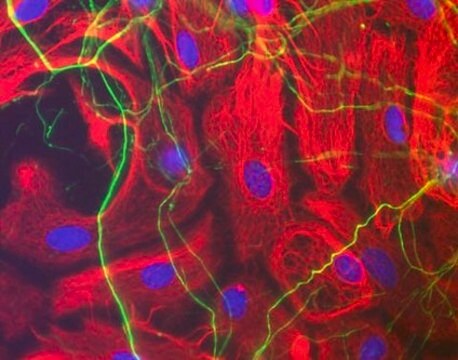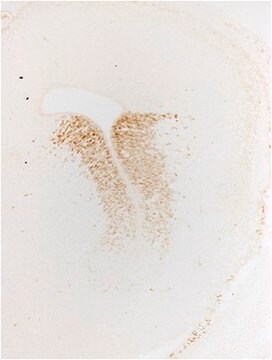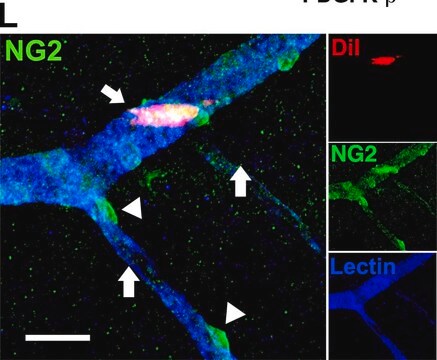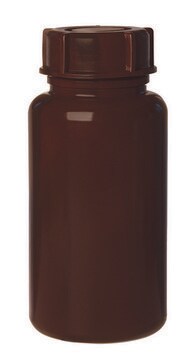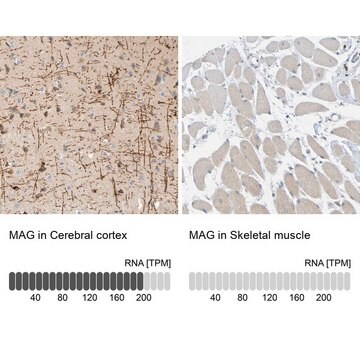MAB5256X
Anti-Neurofilament H Antibody, clone NE14, Alexa Fluor™ 488 Conjugated
clone NE14, from mouse, ALEXA FLUOR™ 488
Synonym(s):
200 kDa neurofilament protein, Neurofilament triplet H protein, neurofilament, heavy polypeptide, neurofilament, heavy polypeptide 200kDa
About This Item
Recommended Products
biological source
mouse
Quality Level
conjugate
ALEXA FLUOR™ 488
antibody form
purified immunoglobulin
antibody product type
primary antibodies
clone
NE14, monoclonal
species reactivity
human, rat, pig, porcine
technique(s)
immunocytochemistry: suitable
immunohistochemistry: suitable
isotype
IgG1
NCBI accession no.
UniProt accession no.
shipped in
wet ice
target post-translational modification
unmodified
Gene Information
human ... NEFH(4744)
pig ... Nefh(100156492)
rat ... Nefh(24587)
General description
Specificity
Immunogen
Application
5-10 µg/mL on frozen brain tissue. Optimal working dilutions must be determined by end user.
Neuroscience
Neurofilament & Neuron Metabolism
Quality
Target description
Physical form
Storage and Stability
Analysis Note
Rat Cortex Cells.
Other Notes
Legal Information
Disclaimer
Not finding the right product?
Try our Product Selector Tool.
Storage Class Code
12 - Non Combustible Liquids
WGK
WGK 2
Flash Point(F)
Not applicable
Flash Point(C)
Not applicable
Certificates of Analysis (COA)
Search for Certificates of Analysis (COA) by entering the products Lot/Batch Number. Lot and Batch Numbers can be found on a product’s label following the words ‘Lot’ or ‘Batch’.
Already Own This Product?
Find documentation for the products that you have recently purchased in the Document Library.
Our team of scientists has experience in all areas of research including Life Science, Material Science, Chemical Synthesis, Chromatography, Analytical and many others.
Contact Technical Service